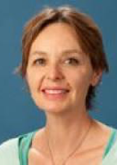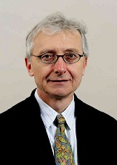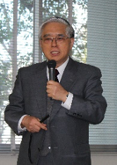Invited Plenary Speakers & Their Abstracts and Bios

Helen Louise Basturkmen
University of Auckland, New Zealand
Title: An EAP/ESP Teacher Education Needs Project
Abstract
Typically the job of English for Academic Purposes (EAP) and English for Specific Purposes (ESP) teachers is a creative yet demanding one. Not only do the teachers provide classroom instruction in specialist English courses but they are often involved in course and materials development, tasks which require a good deal of work outside the classroom. Read MoreThe development of courses for specialist areas often entails teachers in investigating the language needs of particular groups of learners and it may include some form of investigation into disciplinary, professional or workplace discourses in order to devise pedagogical descriptions. The brief of EAP/ESP teachers thus often extends far beyond classroom teaching. Only sometimes and in some circumstances are commercially available teaching materials suitable. Often instruction and materials have to be devised in-house. EAP/ESP teachers thus face a range of tasks which require expert knowledge and skills.
To help develop these areas of knowledge and skills some form of teacher education can be beneficial. Somewhat surprisingly, the literature on teacher education for EAP/ESP is limited. This literature tends to highlight learners’ needs and the demands that learners face in the target situation. It also highlights descriptions of specialist discourse produced by academic researchers. It has not highlighted EAP/ESP teacher education needs, and there has been very limited focus on the demands that teachers face when investigating learners’ needs and specialist discourse and creating courses and materials. The paper reviews themes in the current literature on teacher education in ESP and EAP, including the role of specialised knowledge, suggestions for the content of teacher education programmes and models of teacher education with particular reference to EAP/ESP in-service contexts. It is argued that teacher needs should be an important basis for determining content for EAP/ESP teacher education programmes and that identification of such needs should be an important goal for research. To illustrate such research, I report a recent collaborative research project that investigated teacher education needs and the learning experiences of EAP/ESP teachers working in university settings in Spain. Finally, suggestions are made for a research agenda to develop understanding of the nature of EAP/ESP teacher expertise. Show Less
Biography
Helen Basturkmen is Associate Professor in Applied Language Studies and Linguistics at the University of Auckland. She has published articles in various international journals including, System, Modern Language Journal, Applied Linguistics, English for Specific Purposes Journal, Journal of English for Academic Purposes, Language Awareness, Language Learning and TESOL Quarterly. Read MoreShe has written two books on English for Specific Purposes (Lawrence Erlbaum, 2006; Palgrave Macmillan, 2010) and edited English for Academic Purposes in the Critical Concepts in Linguistics Series (Routledge, 2015). She is currently an editorial review board member of the Journal of English for Academic Purposes. Show Less

Jigang Cai
Fudan University, China
Title: Debates over the paradigm shift from EGP to ESP in mainland China and Implications
Abstract
Teaching English as foreign language (TEFL) to non-English majors at tertiary level in mainland China is popularly known as College English Teaching (CET).It is the required program in tertiary institutions, enjoying the highest proportion of undergraduates and postgraduates. Read MoreBut there have been controversies over its orientation since 1978 when higher education in China began its new chapter after the 10-year Cultural Revolution (1966-1978). There are four major debates: English for general purposes (GEP) vs. English for science and technology (1978-1995), English for CET tests vs. English for communication (1996-2002), English for reading purposes vs. English for listening and speaking (2003-2009), and English for liberal education vs. English for specific purposes(ESP) (2010-now). The crucial point of the four debates is whether CET should merely aim to improve students’ language proficiency or to equip students with necessary skills appropriate to their disciplinary studies. My presentation will explore the underlying causes for the hindrances to the paradigm shift from GEP to ESP. Show Less
Biography
Jigang Cai is a full professor at the Foreign Languages and Literature Department of Fudan University, Shanghai, China. He is currently President of the China EAP Association and Vice President of the Chinese Association for ESP. In addition, he works for the Shanghai government as Chair of the Shanghai Advisory Committee on EFL teaching at Tertiary Level. Read MoreHis research interests include contrastive linguistics to applied linguistics and ESP/EAP studies. He has been promoting the implementation of ESP and EAP at the tertiary level in mainland China. His publication list includes more than 70 research articles and about 6 books on the subjects of these two fields. Show Less

John Maher
International Christian University, Japan
Title: Languages of Medical Communication in Japan
Abstract
Languages in work contexts come and go. German has been an important language in the history of medicine in Japan in three domains: the transmission of scientific knowledge (books), medical training (the teaching of German for specific purposes in medical school) and clinical practice and research (nomenclature, nosology of illness, clinical case-notes). Read MoreThe distribution of the German language in medical fields has been uneven. German featured strongly in some branches of medicine (e.g. Surgery, Psychopathology). In other fields (e.g.Toxicology) French was dominant. The 1960s were the end of German as a language of medical lingua franca in Japan but it remains as what is here described as a ‘language orphan.’ Postwar, there was a substantial shift to English as the professional lingua franca. Japan is now one of world’s leading English-language nations in the field of medical publication. However, there is a backlash. Justification is being made in some countries for the maintenance of local-national languages in medical writing against the dominance of English. In Japan there is still heavy domestic use of Japanese in clinical field. Meanwhile, in medical schools there is a subtle change of emphasis from ‘language study’ to ‘medical communication skills. Show Less
Biography
John C. Maher is Professor of Linguistics at International Christian University, Tokyo, teaching courses in multilingualism, language and politics and the languages of Europe. He has degrees in philosophy, education and linguistics from the Universities of London and Michigan. His Ph.D. from Edinburgh University, Scotland, (1996) dealt with medical multilingualism in Japan and English for Medical Purposes. Read MoreHe was Senior Academic Member at St. Antony’s College, Oxford, was lecturer at the University of Edinburgh and has taught English for Specific Purposes at De La Salle University, Manila and Wakayama Medical University. He is a founding member of the Japan Association of the Sociolinguistics and the author of several books including Linguistics for Language Teaching (Bonjinsha), Introducing Chomsky (ICON) and English as an International Language of Medical Communication (Univ. of Michigan Press). Show Less

Laurence Anthony
Waseda University, Japan
Title: Prototypicality in ESP: Selection, analysis, and visualization of model texts for use in ESP research and teaching
Abstract
ESP research to date has largely focused on the identification of characteristics features of discipline-specific written and spoken texts. In the classroom, ESP instructors present or expose learners to these features and then through various activities and tasks help them to master and apply these features in target communication settings. Read MoreThe analysis of discipline-specific language features has been greatly assisted through the use of corpus methods. However, these methods generally present the target language in a fragmented, decontextualized way. At some point, ESP researchers need to carry out a close reading of complete texts to validate their models, but deciding which texts to read can be a challenging problem. Similarly, in the classroom, learners need to contextualize their learning through exposure to complete texts, but which model texts should an instructor present as examples? In this presentation, I will introduce a fast, automatic, principled way of selecting texts for close reading based on the concept of prototypicality. Then, I will then show how the method can be applied in the analysis and teaching of ESP using a custom built freeware software tool called ProtAnt. Finally, I will discuss how patterns of prototypicality in target texts can be visualized, providing further insights on language use in and across disciplines. Show Less
Biography
Laurence Anthony is Professor of Applied Linguistics at the Faculty of Science and Engineering, Waseda University, Japan. He is the former Director and current Program Coordinator of the Center for English Language Education in Science and Engineering (CELESE). Read MoreHis main interests are in corpus linguistics, educational technology, and English for Specific Purposes (ESP) program design and teaching methodologies. He received the National Prize of the Japan Association for English Corpus Studies (JAECS) in 2012 for his work in corpus software tools design. Show Less

Paul Thomson
University of Birmingham, UK
Title: Disciplinary variation and beyond
Abstract
The teaching of English for Specific Purposes depends on descriptions and understandings of the registers and genres that learners will be required to understand or to produce, either in the present context or in the future. In academic contexts, this has led to thorough analyses of the register features of texts in particular fields or domains of knowledge, with Barber's 1962 study of scientific prose an early pioneer. Read MoreFrom the late seventies onwards, attention moved towards a focus on language in context, and the study of disciplinary differences at both linguistic and cultural levels (where discipline is conceived of as 'culture'). Much of the study of linguistic variation between disciplines has been carried out using corpus analysis tools and resources, while investigation of the cultural aspects has been more ethnographic in methodology.
In the first half of this talk, I will review corpus-based studies on disciplinary variation in academic writing, and the discussions that have developed around notions of disciplinary communities. I argue that the distinctions between disciplines are not always as clear as we make them out to be, and that there are other ways of establishing similarities and differences in approaches to academic writing. For this, I draw on Bethany Gray's studies of variation in a corpus of academic research articles (Gray 2011, 2013) and on my own research into interdisciplinary research discourse, using a corpus of over 11,000 research articles (from 11 Elsevier journals). Show Less
Biography
Dr Paul Thompson is Deputy Director of the Centre for Corpus Research at the University of Birmingham, UK. He has been a Co-Editor of the Journal of English for Academic Purposes since 2009. Read MoreHe was part of the teams that developed the British Academic Written and Spoken English corpora (BAWE and BASE) and recently headed an ESRC funded project investigating interdisciplinary research discourse. Paul lived in Fukuoka from 1983 to 1996. Show Less

Yilin Sun
South Seattle College, USA
Title: Co-constructing ESP Teaching and Learning through Innovation
Abstract
The 21st century ELT field is diverse, complicated, multifaceted and glocal. This is also true for the fast growing ESP field. The expanded global landscape of diversified users, contexts and uses has created opportunities as well as challenges for all ELT professionals. Read MoreWhat can ESP educators do to advance cultures of change and innovation in the 21st century teaching and learning? How can ESP educators best utilize opportunities for ourselves to stay current in the glocalized ELT field? This keynote session will focus on recent development and innovations in the ELT field and ways to empower ESP educators in the process of co-constructing English teaching and learning in the 21st Century. Show Less
Biography
Yilin Sun, Ph.D. in Applied Linguistics/Curriculum and Instruction from the Ontario Institute for Studies in Education (OISE), University of Toronto, Canada. She has served as president of TESOL International Association (2013-2016). This is the first time in TESOL’s 50 years history that a female Chinese NNEST who has served as president of TESOL International Association, the largest professional association of its kind in the world. Read MoreShe has also served as Chair of the TESOL Affiliate Leadership Council (2007), president of Washington Association for the Education of Speakers of Other Languages (WAESOL, 2003, 2007), a Fulbright Senior Scholar (2011–12), and an English language specialist for the U.S. Department of State since 2009. Yilin currently teaches at South Seattle College in Seattle, USA, who has more than 28 years of experience in the field of TESOL as an MA-TESL teacher trainer, researcher, classroom teacher, and program leader with a variety of higher educational institutions in China, Canada and the United States. Yilin is the author and coauthor of books, book chapters, and research papers in refereed professional journals. She also serves on several Editorial Boards of ELT journals including Journal of Language Education in Asia. Over the years, Yilin has presented frequently at national and international conferences as a plenary or a featured speaker. Show Less

Yoshimasa A. Ono
RIKEN Center for Emergent Matter Science (CEMS), Japan
Title: Incorporating Experiences of Training Japanese Industry Research Scientists and Engineers in EAP and ESP Courses at Engineering Graduate Schools in Japan
Abstract
The speaker shares his experiences in training Japanese research engineers in industry research laboratories and in designing and teaching EAP and ESP courses to Japanese graduate students of engineering majors in the past thirty-five years. The common goals of these training and academic courses in industries and at universities are to improve industry research engineers’ and graduate students’ technical writing skills of research papers and international conferences, aiming at improving general comprehensibility in English in global communities of scientists and engineers. Read More
Part 1 of this talk focuses on the training courses in English for industry scientists and research engineers who have not learned the basics of technical paper and abstract writing for publication. The target scientists and research engineers, at the beginning stage of training, tend to conduct direct translation from Japanese to English using common Japanese-English dictionaries when writing technical papers or an academic abstracts, resulting in poorly organized English papers with low comprehensibility and low publication rate. To address this problem, a three-rule-based technical writing/rewriting procedure has been devised: (1) Stating conclusions first, stating causes or giving explanations later; (2) Following the three-step English writing style of introduction, body, and conclusion instead of the four-step Japanese writing style of ki-sho-ten-ketsu; (3) Translating papers from Japanese to Japanese first, and then into English. This teaching technique proves to be effective as the acceptable rate of participants’ papers by journals and international conferences has significantly increased. Part 2 of this talk demonstrates how the knowhow of the above-mentioned industrial training is incorporated into graduate school EAP and ESP courses for engineering students at Japanese universities. The main sample course, “English for Engineers and Scientist A & B”, was offered at the University of Tokyo between 2003 and 2010. The goals of this course was to help develop student competences in how to write technical papers in English and how to make technical presentations in English that could be understood easily by the international English spoken community. The course was divided into two components, A and B. Component A was an eight-week lecture-based instructional component on writing and presentation while B was a seven-week practice component on presentation. Specific aspects of the course syllabus including course materials, student outcome, and evaluation of student papers, presentation and discussion are reported. The effectiveness of the course design combining lectures and practice sessions is discussed.
In addition, some examples of other technical writing and presentation courses developed for and taught by the speaker at other engineering graduate schools in Japan are also introduced. Show Less
Biography
Yoshimasa A. Ono, Ph.D., is Senior Visiting Scientist at RIKEN Center for Emergent Matter Science, supervising electron-microscopy research and teaching technical writing in English. From 2010 to 2014, he worked for “FIRST Tonomura Project” as deputy group director of Single Quantum Dynamics Research Group at RIKEN and Project Coordinator at JST. Read MoreFrom 2005 to 2010 he was Professor at the Center for Innovation in Engineering Education in the School of Engineering at the University of Tokyo, where he taught technical writing and presentation in English. Before joining the university in 2005, he taught technical English and corrected technical papers at Hitachi’s research laboratories in addition to conducting research on electronic devices. He received his Ph.D. in physics in 1977 from the University of Tokyo, and worked as a postdoctoral research associate at the University of Illinois and Case Western Reserve University before joining Hitachi. He has published five books on technical writing and presentation in English for Japanese scientists and engineers and wrote more than 60 technical papers. Show Less